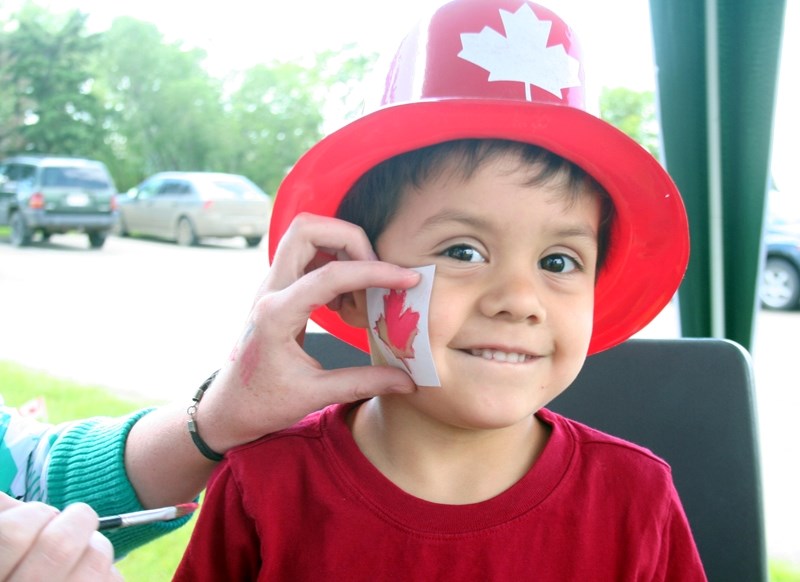There are few symbols as distinctly Canadian as the Maple Leaf — the flag many of us proudly fly in recognition of the country we call home.
It can be seen flying over every government building in the country, as well as in countless other places at all times of year. Over the Canada Day weekend, one can scarcely go outside without seeing it.
However, it can be easy for some of us to take the flag for granted and forget the full gravity of what it represents.
For Steve Folkins there is no ambiguity.
“Our flag, to me, represents morality,” he said. “If you look at our history as a nation, whether it’s sending troops to the great wars, peacekeeping, or support for humanitarian events, it seems we make our decisions what to do hugely based on morality, saying, ‘This is the right thing to do.’”
Folkins spent 20 years in the Canadian Armed Forces with the Princess Patricia’s Canadian Light Infantry, and continues that service to his country as president of the Westlock Legion, a service organization dedicate to supporting veterans and the community as a whole.
The flag, for him, is a symbol of not just what it means to be Canadian, but of the sacrifices Canadians have made in honour of what the maple leaf represents.
Afghanistan comes to the forefront of peoples’ minds when they talk about sacrifices Canadian make on the global scene, but Folkins emphasized this is exactly the kind of morality the flag represents.
“This is a nation in turmoil; it’s got a fanatic in there who’s trying to impose his will on the world, and we’ve got to do something about it,” he said.
The military aspect is just a small part of Canada’s role in Afghanistan, he said, and now that July is upon us, Canada’s military involvement in Afghanistan has officially come to a close.
However, Canada’s role in the war-torn country is as essential as ever, with some 1,5000 soldiers still on the ground performing non-combat duties.
Provincial reconstruction teams are still on the ground, for example, with the goal of doing nothing more than improving the country’s infrastructure. Others continue to train the country’s armed forces and police force.
Further to military involvement, there are many Canadian NGOs involved in humanitarian aid.
The Canadian ideal of doing what’s right is not just something that takes place overseas, Folkins said, but can be seen from coast to coast in our own country. The most recent example that comes to mind, he said, is the response to the Slave Lake disaster — the response to that event was a shining example of the selflessness and helpful attitude embodied by the Maple Leaf.
“Within a little over 24 hours, the Legion was absolutely overloaded,” he said. “We were inundated with goods. That’s quintessentially, a perfect definition of being Canadian. It’s forgetting about yourself for a moment and thinking about others in need.”
Folkins said he is pleased to see people and organizations flying the Canadian flag, and sees it as a representation of a quiet pride that Canadians are known for. However, it causes some degree of concern to see flags that have become tattered or faded in the sun.
“It makes me wonder if maybe the pride has gone, for whatever reason, or it just hasn’t become an important symbol in an individual’s or that organization’s life,” he said. “When I see a flag getting worn, it’s time to get it replaced.”
Ultimately, the flag remains a potent symbol of what it means to be Canadian and continues to be a source of pride for many Canadians from coast to coast.
“It’s about doing the right thing, and I think that a lot of people internationally recognize that. We’ve got a great history and a great track record, and we’re recognized for that,” Folkins said.



